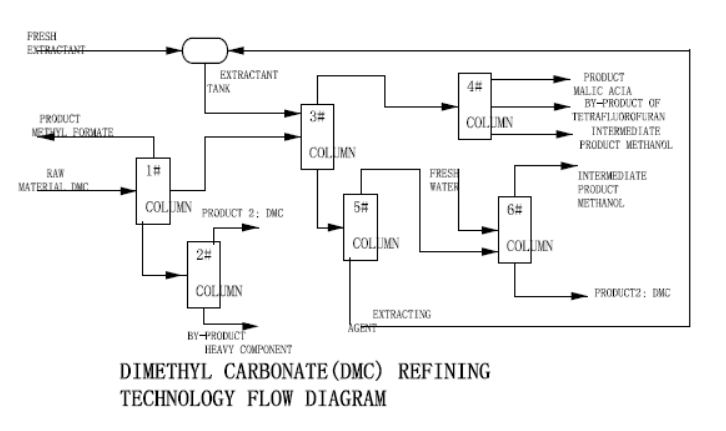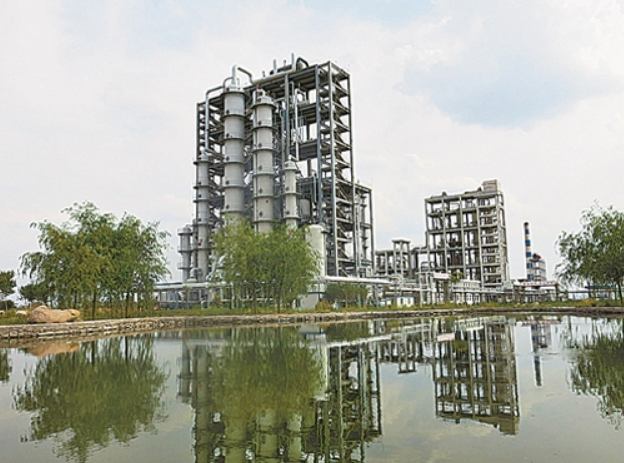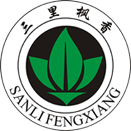Dimethyl carbonate (DMC) is a versatile chemical compound with a wide range of applications across various industries. Its chemical formula is (CH3O)2CO, and it is a clear, colorless liquid with a distinct odor. DMC has gained significant attention due to its environmentally friendly properties and diverse utility in different sectors.

Chemical Properties of Dimethyl Carbonate
Structure and Composition
DMC consists of two methyl groups (CH3) and a carbonate group (CO3) linked together. This compound is highly polar, making it a useful solvent for various polar and non-polar substances. It is also miscible with many organic solvents and water, enhancing its versatility.
Environmental Characteristics
One of the most notable features of DMC is its eco-friendly nature. It is biodegradable, non-toxic, and does not contribute significantly to ozone depletion or greenhouse gas emissions, making it an attractive alternative to more harmful chemicals.

Dimethyl Carbonate (DMC) Refining Technology
Applications of Dimethyl Carbonate
1. Solvent in Organic Synthesis
DMC serves as a valuable solvent in organic synthesis processes due to its ability to dissolve a wide range of organic compounds. It is particularly useful in the production of pharmaceuticals, agrochemicals, and specialty chemicals. Its low toxicity and environmentally friendly nature make it an ideal replacement for more hazardous solvents like methylene chloride and dichloromethane.
2. Lithium-ion Batteries
In the field of energy storage, DMC plays a role as an electrolyte solvent in lithium-ion batteries. It improves battery performance by enhancing the conductivity of lithium salts and increasing the efficiency of the battery.
3. Polycarbonate Production
DMC is a key intermediate in the production of polycarbonates, which are widely used in the manufacture of eyeglass lenses, CDs, DVDs, and various other consumer products. Its role in this process involves the synthesis of polycarbonate precursors through reactions with bisphenol-A (BPA) or other diols.
4. Fuel Additive
As an oxygenate fuel additive, DMC has been explored as a potential component in gasoline formulations. Its oxygen content can enhance combustion efficiency and reduce emissions of pollutants like carbon monoxide and hydrocarbons, contributing to cleaner fuel options.
5. Coating and Paint Industry
DMC finds application in the production of coatings and paints due to its solvency properties. It can act as a carrier solvent in formulations for paints, coatings, and surface treatments, offering advantages such as low volatility and reduced environmental impact compared to traditional solvents.
6. Pharmaceuticals and Cosmetics
Within the pharmaceutical industry, DMC serves as a solvent in the production of drugs and pharmaceutical intermediates. Its low toxicity and ability to dissolve various compounds make it a preferred choice for certain pharmaceutical formulations. Additionally, it's utilized in cosmetics as a solvent or as an ingredient in personal care products.
7. Pesticides and Agrochemicals
DMC is involved in the manufacturing processes of pesticides and agrochemicals. Its solvent properties are valuable in formulating these products, ensuring effective dissolution of active ingredients and facilitating their application.
Challenges and Future Prospects
Regulatory Challenges
Despite its numerous advantages, the widespread use of DMC faces regulatory challenges due to safety concerns and regulatory compliance requirements in various regions. Safety protocols and proper handling are crucial due to its flammability, though its low toxicity profile compared to many other solvents is a positive aspect.
Research and Development
Ongoing research efforts are focused on enhancing the production processes, finding more efficient synthetic routes, and exploring novel applications of DMC. Researchers are also investigating methods to improve its stability and reduce costs associated with its production.
Conclusion
Dimethyl carbonate, with its diverse applications spanning various industries, stands out as a promising compound due to its environmentally friendly characteristics, solvent properties, and contributions to the development of safer and more sustainable chemical processes. As technologies advance and environmental concerns intensify, the utilization of DMC is likely to expand further, fostering innovation and driving its adoption across different sectors.

















